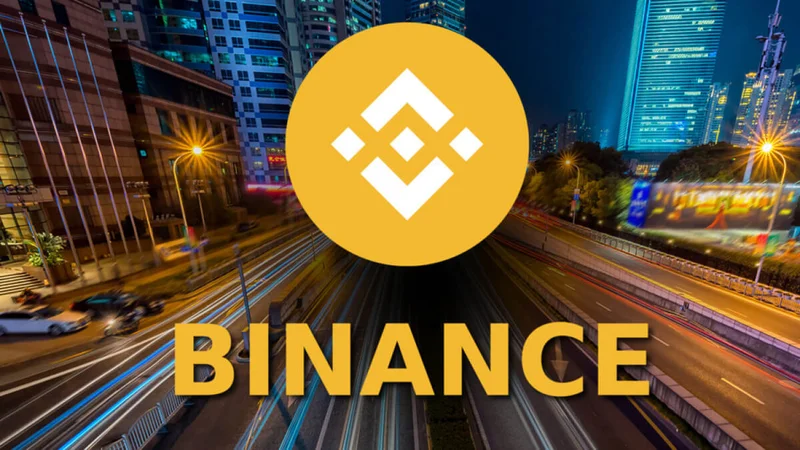Binance Under the Microscope: What's Next After the DOJ, and the Trump Card?
Trump's Crypto Pardon: Cleaning Up Binance's Mess or Greenlighting More?
The intersection of crypto, crime, and political pardons is rarely a clean one. The recent ICIJ report, coupled with Trump's pardon of Changpeng "CZ" Zhao, former CEO of Binance, throws that mess into stark relief. The data paints a picture far more complex than simple justice or corruption. It suggests a system where regulatory loopholes, technological innovation, and political maneuvering create a potent, and potentially dangerous, mix.
The Numbers Don't Lie (But They Do Need Context)
The ICIJ's Coin Laundry report highlights a disturbing trend: major crypto exchanges facilitating transactions for criminal organizations. Binance, OKX, HTX, Bybit, Kraken cited in ICIJ scam probe - Protos | Informed crypto news are all implicated. The most glaring figure? Binance facilitated at least $408 million worth of tether (USDT) transactions for the Huione Group, a Cambodia-based operation linked to human trafficking and scams, between July 2024 and July 2025. OKX wasn't far behind, receiving over $161 million after the US Treasury designated Huione as a “primary money launderer” in May.
Now, Binance claims to work closely with law enforcement and investigates suspicious activity. But the sheer volume of transactions raises questions. Can any exchange, even with the most sophisticated AI-powered monitoring, effectively police the flow of hundreds of millions of dollars? Or are these claims merely a PR smokescreen? The spike of over $900 million from THORChain into Binance deposit addresses, coinciding with the $1.5 billion Bybit hack by North Korean hackers, certainly doesn't inspire confidence.
It's easy to get lost in the millions (or billions) of dollars being thrown around. But let's bring it down to a more human scale: Huione was reportedly funneling roughly $1 million worth of USDT a day to customer accounts on Binance, even after the US designation. That's a constant stream of illicit funds, potentially impacting countless victims of scams and human trafficking.

The Pardon: A Calculated Risk?
Then comes the pardon. Trump, no stranger to controversy, pardoned CZ Zhao, who was previously charged with violating the Bank Secrecy Act (BSA) and paid a record fine of more than $4 billion. Critics are calling it a quid pro quo, suggesting Zhao effectively bought his freedom. Former DOJ pardon chief Elizabeth Oyer called it “unprecedented” and “corruption.” CZ's response? A cryptic comment on X that if Binance gets any refund, they will be investing that in America. (The details of that potential "refund" remain murky, to say the least.)
Here's where I find myself genuinely puzzled. Trump and his affiliates have been diving headfirst into the crypto world during his second term, including a new tokenization project involving a Trump-branded hotel development and the TRUMP memecoin. World Liberty Financial, which Binance holds roughly $2 billion in its stablecoin USD1, is also in the mix. Is the pardon a cynical move to solidify his base within the crypto community and grease the wheels for future ventures? It's a possibility that shouldn't be discounted.
Consider this: the $4 billion fine Binance paid is a record. But is it a deterrent? Or just the cost of doing business for a company that facilitated potentially hundreds of millions in illicit transactions? The pardon sends a clear message: even if you get caught, a well-timed political favor can erase the consequences.
This isn't just about Binance or Trump. It's about the broader regulatory landscape of the crypto industry. The lack of clear, consistent rules creates opportunities for bad actors to thrive. Exchanges can claim they're doing their best to combat money laundering, but the reality is that the current system incentivizes lax oversight. The "move fast and break things" mentality of Silicon Valley clashes violently with the need for financial transparency and accountability.
The Swamp Just Got a Crypto Upgrade
The pardon isn't just a get-out-of-jail-free card; it's a flashing green light. It signals that the crypto world, with all its inherent risks and potential for abuse, is now firmly embedded in the political establishment. The question now isn't whether crypto will be regulated, but how and by whom. And whether those regulations will be designed to protect consumers and prevent crime, or simply to enrich those already in power.
Tags: binance
Asia's Growing Strength: What It Means for the Global Market and Beyond
Next PostVerizon Layoffs: Scope, Impact, and Reddit Reactions
Related Articles
